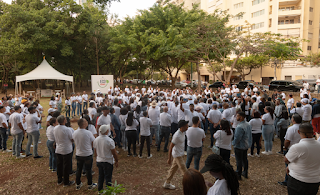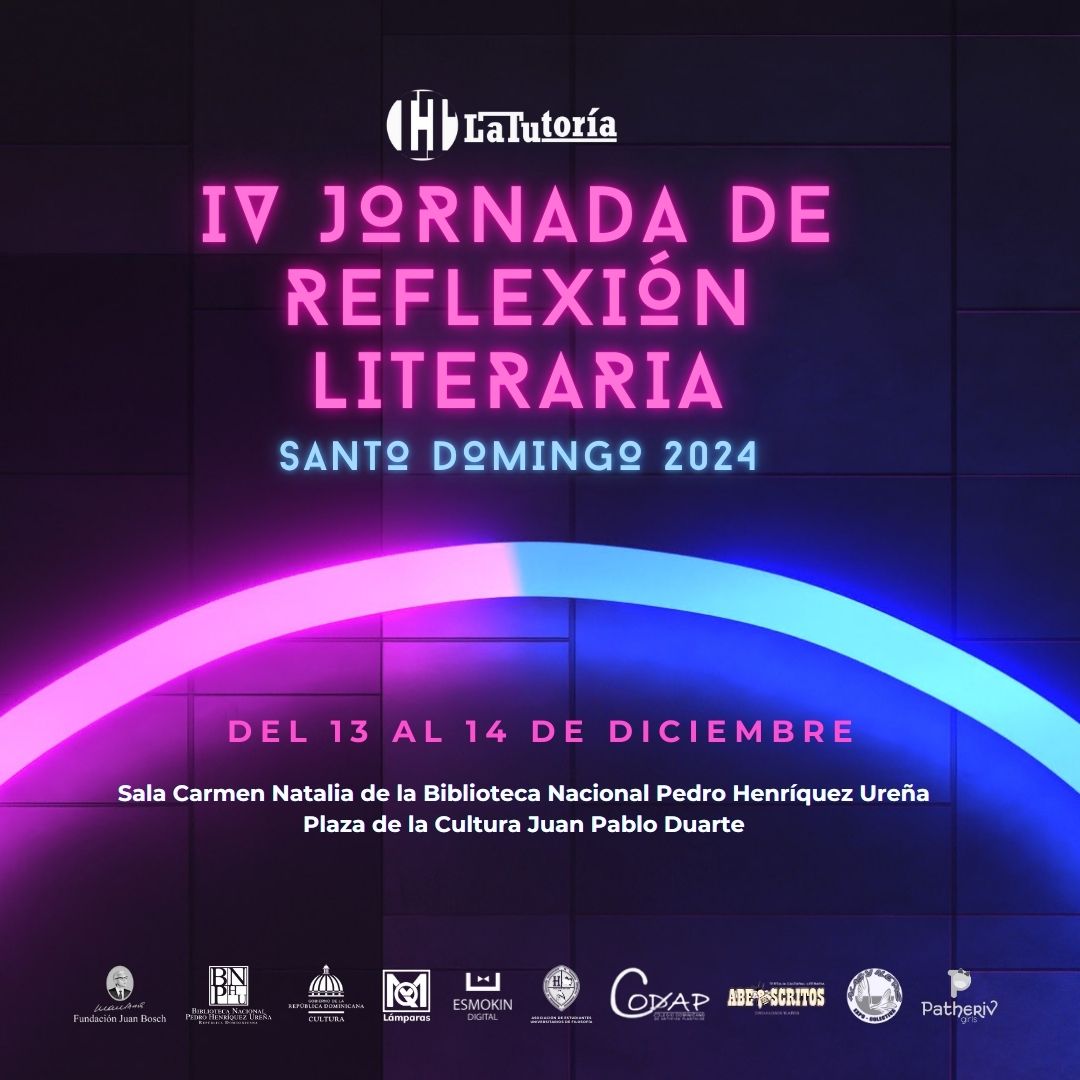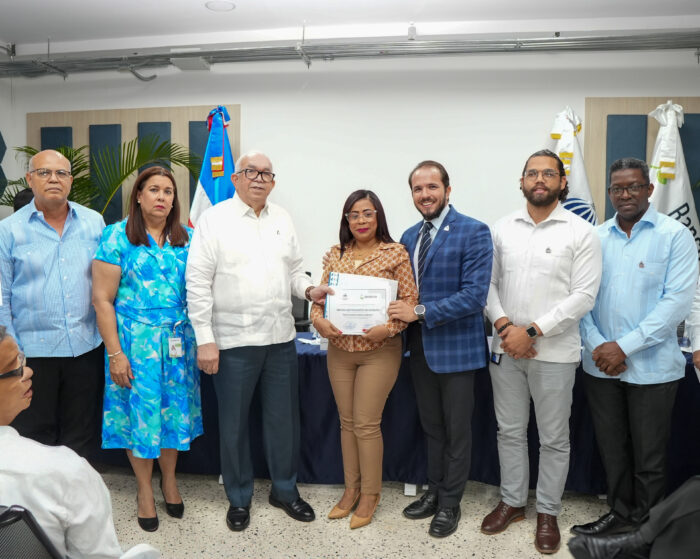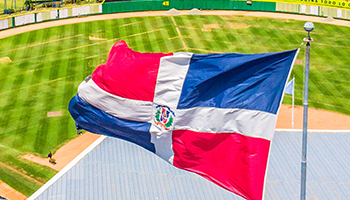Education Ministry Achievements in 2011 in the Area of Education
 | Education Ministry Achievements in 2011 in the Area of Education The end of 2011 saw a series of major achievements for the Ministry of Education (MINERD in Spanish), under the direction of Minister Josefina Pimentel. Those achievements included the building of 53 schools in various communities around the country, a 15% increase in teachers´ salaries, the recovery of ARS SEMMA and other accomplishments connected to the three lines of action which are: social dialogue, institutional strengthening and quality. “These accomplishments are part of MINERD´s enormous effort and the government of President Leonel Fernández for optimizing the full range of public education with already existing programs to improve the quality of teachers..” After only nine months of having initiated the MINERD project, they also put into effect a pilot plan involving extended days in 21 schools and a plan to improve the School Alimentation Program (PAE in Spanish) with the addition of new healthy choices on the school menu and stepped-up quality supervision by the United Nations organizations. Looking at the Ministry´s year-end balances, Minister Pimental said: “These accomplishments are part of MINERD´s enormous effort and the government of President Leonel Fernández for optimizing the full range of public education with already existing programs to improve the quality of teachers, to provide better meals for students and to guarantee the comfort and safety of the infrastructure of schools and educational offices with the construction and repair of buildings.” Buildings During the second half of 2011, the education system received significant contributions toward academic infrastructure. In 53 localities around the country, new learning and personnel development centers were provided by MINERD. Another 58 were added to deal with a population of 50,205 students with an investment of 1,174,886,832 pesos used to build 655 new classrooms, 21 computer labs, 18 science labs, 15 multi-purpose rooms and 30 mixed sports fields. In addition to all this, 111 new schools will be handed over, at the latest, in January 2012. The schools built by MINERD´s Department of School Construction, with general funds from the Central Government, the World Bank, the International Construction Bank (BIRF in Spanish) and the Inter-American Development Bank (IDB), have installations and equipment which is in compliance with the requirements of modern teaching and learning. The 53 schools that entered into the system at the beginning of the current school year together equal an investment of 1,868,527,000 pesos, of which 26 are middle schools with 288 classrooms; 21 are elementary schools with 174 classrooms and six are model early learning schools with 38 classrooms. These schools were equipped with 24 computer laboratories, 14 science labs, 19 multi-purpose halls to be used for cultural, recreational and academic activities for the school as well as the surrounding community. In addition, there are 20 libraries and 15 kitchens for food storage, preparation and distribution of the school breakfast. The buildings are also equipped with 38 playing fields for various sports including basketball and volleyball courts. There are also other facilities like administrative areas for teacher management, personnel and human resources, a civic plaza and dual systems for an aqueduct for potable water storage, an underground pump to guarantee permanent water supplies and a cistern with an internal distribution mechanism and integrated water tank. In addition, the Ministry of Education began construction work on 62 schools and is preparing a bid for another 55. Investment in Education At the official opening ceremony of the 2011-2012 school year, held at the newly-inaugurated Aragón Polytechnic Institute of Los Guaricanos in Santo Domingo North, President Leonel Fernández and Education Minister, Josefina Pimentel, made important announcements to the education community. One of them was that there would be an increase in the annual education budget. President Fernández explained that throughout his terms in government, the education budget increased from 15 billion pesos in 2004 to 43 billion in 2011, which reflects an increase of 500% in seven years. From 2004 to 2011, under the governments headed by President Fernández, 222 schools have been repaired in Santo Domingo and the National District at a cost of 2,751,363,997 pesos which covered the building of 903 classrooms and the repair of 1,419. Removable Classrooms The current MINERD management team has contributed other types of solutions such as removable classrooms which the Ministry has made available to the Las Brisas del Este community in Santo Domingo East. It has also provided 8 removable classrooms in trailer style to the Narciso González School in Los Alcarrizos. Both added up to an investment of 23,357,184 pesos. Recently the Ministry undertook an expansion and major repair program of 13 elementary and middle school buildings in various regions around the country with an investment of 204,740,842 pesos. This project includes the completion in Monción, province of Santiago Rodríguez, repairs in the building where Juan Pablo Duarte School, the Salomé Ureña Night School, Bienvenido Guzmán Elementary school and the La Trinitaria Continuing Education for Adults all function. The cost of this was completed with an investment of 8 million pesos. The plan also includes the 29 classrooms of the Onésimo Jiménez junior high of Santiago, with an additional investment of 17, 932, 324 pesos, and the Republic of Argentina School in Santo Domingo, with 24, 490, 404 pesos. Major repair includes the upgrading of electrical and sanitary systems, waterproofing the ceilings and roofs, painting the classroom and outside walls and generally sprucing up the areas surrounding the schools. The list of schools currently undergoing repairs includes: the Francisco del Rosario Sánchez Secondary School in Samaná with an investment of 16,268,951; the Fabio A. Mota Polytechnic in Los Mina, Santo Domingo East with 30 classrooms and an investment of 15,754, 325 pesos; the Felicia Castillo School (7 classrooms) and the Doctor Elías Rodríguez School (12 classrooms), both of Bonao with investments of 4,401,015 and 27,610,629 pesos, respectively; the José Antonio Fernández, in La Vega, with 17 classrooms and another three that will make a total of 20 in the near future, with an investment of 10, 925, 905 pesos. Agreements With the goal of forming joint projects with institutions and businesses throughout 2011, the Ministry of Education signed a series of agreements focused on two or three large projects based on: social dialogue and institutional strengthening. These various signed agreements include two with the INICIA Foundation: one for the organization, development and strengthening of human capital of MINERD employees and the other is earmarked for budget support. Another agreement, with the Catholic Pontifical University Madre y Maestra (PUCMM), was signed as a memorandum of understanding to improve the learning of math in the beginning levels of elementary schools. The Ministry of Education also signed an agreement with the Commission to Support Reform and Modernization of the Justice System (CARMJ in Spanish) to develop a civic culture project. Likewise it signed agreements with PUCCM, the Organization of Ibero-American States (OEI), the US Agency for International Development (USAID) and the Poveda Cultural Center to promote learning at the elementary level. Other accords were signed with the Internal Tax Office (DGII), the Office of the Attorney General of the Republic, the Institute of Technical Professional Training (INFOTEP in Spanish), The Ministry of Higher Education, Science and Technology (MESCYT), the National Statistics Office (ONE in Spanish) and the National Institute of Water Resources (INDRHI). Other important agreements were signed with seven businesses which are partnering with schools. These companies include Claro which is participating in the technology training for teachers; another with the Ministry of Public Administration and the Dominican Teachers Association, all with the goal of strengthening the profession of teaching. APMAE To support and strengthen the work being done in the schools, the Education Ministry held a series of meetings with various Associations of Parents, Teachers and Friends of the School (APMAE in Spanish) in the metropolitan area and around the country in such places as Santiago in the north, San Francisco de Macorís in the northeast and in Higüey and San Pedro de Macorís in the east. These meetings were coordinated with the Department of Community Participation. Throughout these meetings with APMAE, Education Minister Pimentel urged parents to assume the commitment of working together with MINERD for their children to receive quality education centered on values. Well-Being of Teachers On October 24 of this past year, MINERD satisfied a lingering aspiration of the teachers: a retroactive 15% pay raise, which corresponded to the months of August and September of 2011. The total increase amounted to 626,359, 760 pesos. Teachers were also recently benefitted with a series of measures which include the creation of 8,915 jobs at an investment of 477,467,748 pesos. Recovery of ARS SEMMA Thanks to the financial recovery and reorganization of the Teachers Insurance Program (SEMMA in Spanish), which was done under the current Education Ministry, all health services have been re-established and are readily available for teachers. Actions taken that facilitated SEMMA’s recovery included the restructuring of the processes and systems including the culling of the organization’s membership ranks and organizing the portfolios of their institutional and professional providers. They also incorporated a modern information technology and communication management system. They restructured their call center to facilitate their authorization system as well as the design, implementation, automation and online integration of their hiring procedures, auditing, invoicing and payment for services and the formulation of a tax rate system for the buying and selling of procedures and services. In an effort to support the health, reform and modernization processes of SEMMA and MINERD, the Ministry of Finance has made available 384 million pesos to be given to them both. An initial 200 million was made immediately available and the other 184 million is earmarked for the payment of accumulated debts. The distribution of these funds is being done with the cooperation of the Superintendence of the Office of Health and Labor Risks (SISALRIL in Spanish) and the General Accounting Office of the Republic. Student Well-Being Programs The main achievement of the Office of the Student Well-Being Program of the Ministry of Education throughout this school year has, without a doubt, been the expansion of the School Alimentation Program (PAE in Spanish) with the inclusion of nutritious cookies and snacks. On a daily basis, the program benefits 1.5 million students from pre-K through elementary school in 5,025 public schools. In November, the DGBE undertook changes in the meals delivered in the urban-marginal areas of PAE which also involved training personnel in the bread baking area where cakes and cookies are made. As a result, they are making a nutritional cookie with flour, sugar, eggs, oatmeal, sesame and raisins. They have also modified the recipe for cakes and rolls. In an effort to assure that the product suppliers of the PAE urban-marginal areas make uniform products with the required quality ingredients, they have organized workshops, jointly with the Institute of Professional Technical Training (INFOTEP), called the “Unification of Criteria for the Baking of Nutritious Cakes and Cookies for PAE.” These workshops are given to 244 bakery owners and their employees. In addition, there were 17 educational training workshops in 21 districts directed at regional coordinators, district professionals, school principals and mothers who cook for the schools in the PAE border modality. The workshops taught quality assurance, nutrition and food safety and handling. The workshops covered the border area and benefitted a total of 472 mothers, 488 directors and 38 professionals. The Ministry also launched the Student Comprehensive Health Program whose main objective is to provide health care and medical attention to school age children keeping in mind its five target areas: preventative health, nutritional, visual, dental care and hearing exams. Through this program, thousands of children have received medical assistance all around the country. In the area of health prevention, two School De-Worming Programs were carried out in April and November and benefitted 1.5 million students, teachers and school personnel in Pre-K and elementary school. In addition, 115,300 folic acid and iron pills were distributed to 23,060 students in the introductory phase of the project. Extended School Day One of the largest innovations of the current MINERD administration this school year is the extended school day pilot program: 8 am to 4 pm, now underway in 21 schools, rural and urban, in different places around the country. The extended day program affects 8,000 school children. Some of the schools involved in the extended day are the following: Luis Reyes in Cotuí; Don Juan, Monte Plata; El Carmen, in Santiago; Café con Leche, Santo Domingo West; Futuro Vivo, in Guerra; La Ginita in Santiago Rodríguez; Sotero Martínez in Yamasá; Emiliano Espaillat, Fantino, Cotuí and El Manchado, Hato Mayor, among others. The objective of this project includes contributing to educational quality and equality while offering the comprehensive development of students, promoting renewed curriculum opportunities and presenting a major commitment to children’s education on the part of the participating communities. Teachers and teaching With the goal of introducing improvements in teaching, the Education Ministry through the Deputy Ministry of Technical and Pedagogical Services, has undertaken to work jointly with the National Institute of Teacher Training (INAFOCAM) to establish a new model of continued training based on classroom practices while searching for more and better learning techniques. Currently there are seven courses ongoing with 818 participants enrolled. Another course is being developed by the Teacher Training Program for professionals and other areas which already has 423 participants enrolled, of which more than 90% are teachers. Summer orientation programs for the 2011-2012 school year were held. Their focus was on planning and developing curriculum; pedagogical management, educational evaluation, attention to diversity, teaching innovation, technical skills updating and community and school relations. The course included workshops and meetings for more than 75,000 participants involved in the education system including national, district and regional professionals and technicians, regional, district and school directors, academic coordinators, pedagogical and teachers’ networks. As part of the actions linked to quality management, the implementation of a central classroom model was promoted. The results of the learning processes were connected to the goal which was to strengthen the early years of elementary school and to guarantee a cognitive and behavioral base in the hope of enabling students to achieve the expected learning goals of the curriculum. In the area of adult education, a proposal for a more flexible model was worked out. This enabled the adult population to complete basic and middle school learning levels without having to be tied to a normal school calendar which might not adapt to his/her needs and possibilities. Technology In the nine months of Education Minister Pimentel’s administration of MINERD, the main actions in the area of technology were directed at continuing to supply the Ministry and the education system in general with the necessary tools to make the processes more facile and dynamic and to take advantage of technology as a resource for learning and teaching. To this end, the Ministry, in coordination with Microsoft and the Fundación Global Democracia y Desarrollo (FUNGLODE), developed a training project for 5,078 school directors in the management of technology, systems connectivity and use of digital resources as a learning tool as well as a support resource to be used by school administrators. All of this was made possible with an investment of 5,701,062 pesos. To achieve these goals, the Office of Educational Information and Technology developed some 400 courses on a national level. The Ministry also distributed the collection of Digital Didactic Resources which contains some 618 resources for teaching orientation as well as ideas for curricular and classroom support. It also carried out the Summer 2011 Training Program for teachers of various educational levels including 122 regional and district directors in the 18 Board of Education’s regions and 104 districts. Participants received a process of induction on the various aspects of Information and Communication Technology (ICT). Nearly 5,000 school directors were also oriented on the potential of the National Supervision System. This included orientation on the content and data captured by the instruments used by the Educational Supervision and Accompanying System (SAS). On the other hand, the Office of the Minister gave 122 laptop computers and 122 wide band wireless internet connection devices to the same number of regional and district school directors who were then trained to use and take advantage of the SAS. With these actions, the Education Ministry has provided the necessary follow-up to the Schools Connected Program which contemplates that more than 8,000 schools around the country will have this same internet technology and capacity to keep track of information such as student registration, school building conditions, academic calendar, teaching assignments and students’ grades and records, among other things. The Multimedia Kit project also got underway this year. The Kit contains a plasma television screen, a computer and a collection of digital teaching resources which are expected to impact more than 2,000 classrooms in some 600 schools from elementary to middle schools all around the country. Until the end of November, some 100 classrooms were equipped and the distribution of the Multimedia Kit continues. As part of this project, Minister Josefina Pimentel gave the Salomé Ureña Superior Institute for Teacher Training (ISFODOSU in Spanish), 104 Kits to the same number of classrooms at the school as well as equipment for 103 TV Schools.
| |

Related News
-

(Versión en español) Se unen para arborizar el Mirador Sur, en jornada "Ecohéroes"
-

(Versión en español) Emprendedores de Banco Adopem son reconocidos en los Premios BCIE
-

(Versión en español) Llega la IV Jornada de Reflexión Literaria Santo Domingo 2024
-

(Versión en español) Tecnificación de Riego certifica más de 400 colaboradores Banco Agrícola
-

Dominicanos en Grandes Ligas
Las ultimas noticias/novedades de lo que acontece con los Dominicanos en las Grandes Ligas durante toda la temporada 2019.





